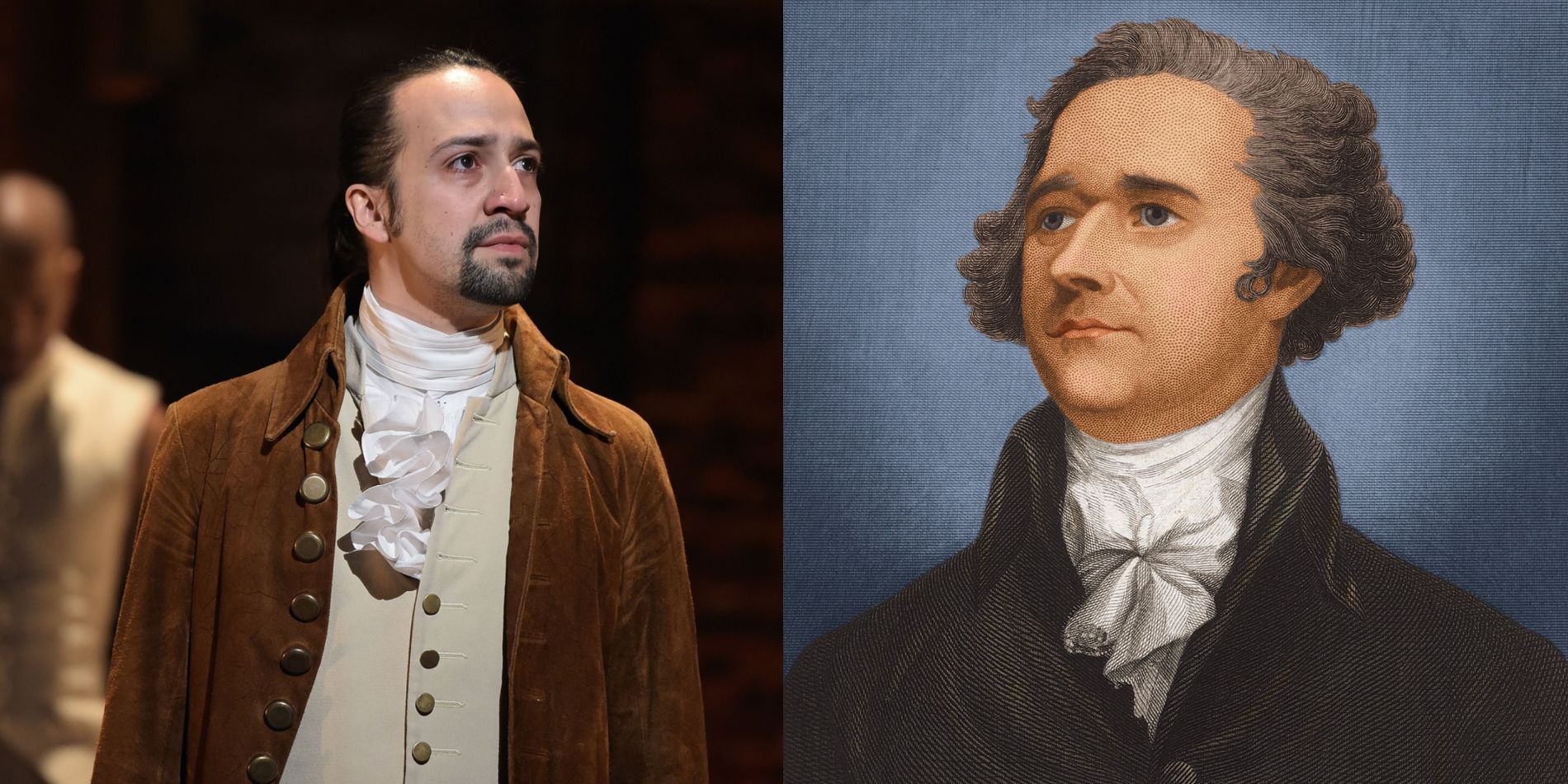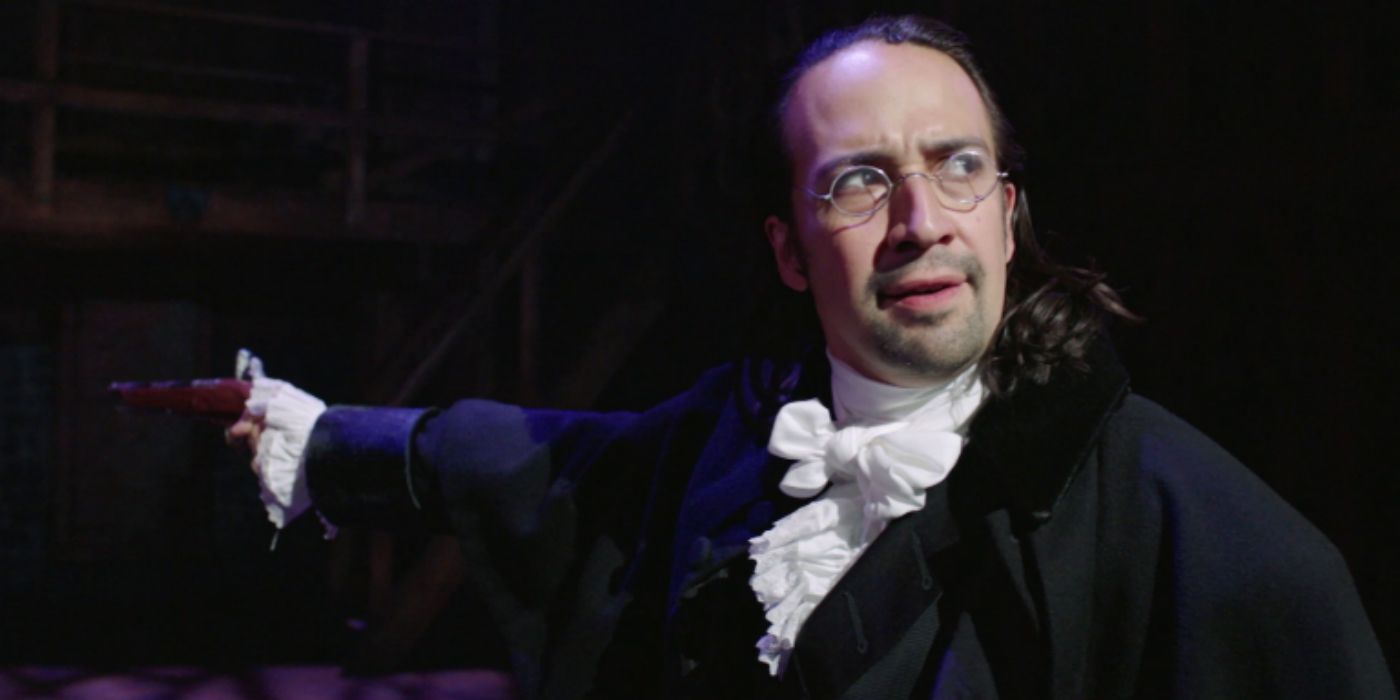Despite its near-universal acclaim in the world of theater and pop culture, the musical Hamilton does have its fair share of criticisms. One in particular is the show's perceived white-washing of Alexander Hamilton's culpability in the slave trade. Debuting on Broadway in 2015, Hamilton is Lin-Manuel Miranda's blockbuster adaptation of Ron Chernow's biography on the life of Alexander Hamilton. The show focuses on critical events in both the life of Alexander Hamilton as well as the birth of America as a nation, infusing them with a contemporary hip-hop style as well as a cast made up almost entirely of actors of color in order to retell the origins of America through the lens of the people most disenfranchised by it.
The show was originally slated for a wide theatrical release in October of 2021, as part of a promise made by Miranda to ensure that Hamilton could be made widely accessible. However, due to the coronavirus pandemic, those plans had to be scaled back, and instead the musical made its premiere on Disney+ on July 3rd of this year. The result was a massive success for both the musical and Disney+, which saw a massive influx of new subscribers as a result of the show's presence.
With the musical available to more audiences than its original Broadway run, conversations regarding the show were sparked up again. One of the most persistent and challenging topics of discussion is what the show leaves out of its narrative in regards to America's dehumanizing treatment of Black people and specifically, Alexander Hamilton's own participation in America's gruesome original sin.
Hamilton doesn't shy away entirely from the topic of slavery. In fact, it's a point of discussion a few times in the musical. In the opening song "Alexander Hamilton," the lyrics make mention of Alexander's experiences growing up on an island in the Caribbean and watching slaves being bound for passage to America: "And every day while slaves were being slaughtered and carted away / Across the waves, he struggled and kept his guard up." It's clear that Hamilton obviously empathized with the plight of slaves, and real-life history shows us this was always the case. In his 1774 essay "A Full Vindication of the Measures of the Congress," Hamilton compared the struggles of enslaved people to the struggles of the colonists themselves, and in 1779 he supported a failed plan engineered by John Laurens to enlist slaves into the Continental Army in exchange for their freedom.
However, despite Hamilton's seemingly personal objections to slavery, he was willing to keep them quiet to advance his political career. When he served as Washington's advisor during the Revolution, there are no historical records of the subject ever being discussed between the two men, despite Washington owning over 100 slaves. And after the war, Hamilton was a crucial part of the legendarily dehumanizing 3/5ths compromise, which saw enslaved Black people represented as 3/5ths of an American citizen to ensure "fair voting power" for the southern states. Even when Hamilton attempted to mediate the issue of slavery, such as helping to found the New York Manumission Society (an organization dedicated to ensuring the gradual emancipation of slaves in America), it was marred by hypocrisy, as over half of the organization owned their own slaves at the time.
Perhaps the most damning element of Hamilton's relationship with slavery comes in the form of his marriage to Eliza Schuyler (Phillipa Soo). The Schuylers were a notorious slave-owning family, with Hamilton's father-in-law George owning at least 27 different human beings on his property. Historical records show that Hamilton even had a part in buying and selling slaves for his in-laws, despite what abolitionist views he may have held.
Despite the moral contradictions that defined his life, had Hamilton not died so early, he may have played an important role in America's long-overdue emancipation of slaves. As Eliza states in the show's final song, "Who Lives, Who Dies, Who Tells Your Story": "I speak out against slavery / You could have done so much more if you only had time." It's a shame that the musical Hamilton couldn't fit every nuance of Alexander Hamilton's life because the Founding Father's views on slavery are as complex, flawed, and paradoxical as every other part of him.


